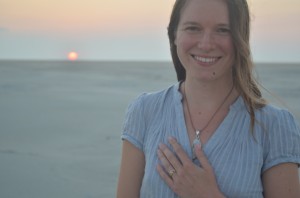I first became aware of Gary Dorrien in February of 2005, when he gave a speech at Progressive Christians Uniting’s annual gala. He spoke eloquently on the subject of Empire, proffering new and challenging ideas even among a group of people who were already well aware of George W. Bush’s cabinet and the Administration’s Project for a New American Century. The themes he included in his talk are archived in an article he wrote for Cross Currents entitled, “IMPERIAL DESIGNS Theological Ethics and the Ideologies of International Politics.” That night he stunned us with a clear outline of the United States’ plans to maintain global empire – and just in case any of us had illusions about what may have happened had Gore won the 2000 election or Kerry the 2004 election, he stated that these plans were progressing inexorably, “EVEN IF the Democrats had won the 2000 election.”
You can imagine the consternation of the progressives in the room. We all believed that things would not have been as bad under Gore or Kerry; however, now under Obama we see that Empire is what the U.S. does. Dorrien was right.
The passion with which he speaks is tempered by his gentle presence. An ordained Episcopal priest, Dorrien listens closely and respectfully to others, and is kind in his one-to-one conversations. One might call him humble.
In his 2009 opus, Social Ethics in the Making: Interpreting an American Tradition, one senses Dorrien’s passion for Social Justice and for the tradition history of the discipline of Social Ethics. As an ethicist and public scholar, Dorrien himself is the author of 14 books and over 200 articles. In this work, he pays homage to the American Social Gospellers of the past 150 years, tracing the lines of thought and discourse through close, careful, and extensive research and analysis. (Each chapter has dozens of endnotes; many of the endnotes have multiple citations.
His passion for the subject comes through in the writing; the reader is carried along almost as if these thinkers were Dorrien’s old friends, and he is recounting his conversations with them. He seems to love tracing the questions raised by Social Ethics as a discipline, as the discipline is developed and the conversations are recounted beginning in 1880 and continuing through to today.
He tackles Protestant thinkers and Roman Catholic activists with equal verve, describing, for instance, that Graham Taylor is “an indefatigable social activist” (Chapter 1, Inventing Social Ethics), and helping us to appreciate John A. Ryan’s commitment to economic relief following the great Depression, despite Ryan’s notion that the Roman Catholic Church should just be accepted as the faith of the Commonwealth.
But for me, the real genius of the book comes in Dorrien’s treatment of women ethicists and of men of color. In the book he shows the trajectories of the received tradition as reconceived by scholars such as Rev. Dr. Beverly Harrison and Rev. Dr. Emilie Townes (who both served in the Carolyn Beaird Chair of Christian Ethics at Union Theological Seminary), without framing their work as somehow outside of, or anathema to, the stream of thought into which they have entered and have made their marks. It is this respect and mutuality that marks Dorrien as a new kind of American Scholar: a white male who does not rest within his privilege, but rather, continues to urge that people of faith work to restrain the abuse of money and power both within themselves, and without in the broader culture. In this YouTube Video, Dorrien makes the case for equality through economic democracy and community cooperation. He does not push for his own ‘pet’ theories, but rather trusts the communities to create their own economic strategies, to ‘nurture and sustain social trust’, as well as empowering people to make their own choices in consultation with their communities.
I know Dorrien is my kind of Public Scholar, because when I read his books or hear him speak, I grow uncomfortable with my own complaisance. He does not bully, as some impassioned speakers might; rather, he fearlessly proclaims the truth of what is, and how it can and should be changed. He is collaborative and kind as well as bold and confrontational; a rare combination of Prophet and Learner – which serves us well in the public sphere. He has the passion of a raging fire, contained within a gentle man.
Rev. Sandie Richards is an ordained United Methodist Minister serving a vibrant, diverse, and active congregation in Downtown Los Angeles. She lives in Los Angeles with her comedian husband Bill, their son Woody, and their two little rescue dogs. You can reach her via email or twitter.











